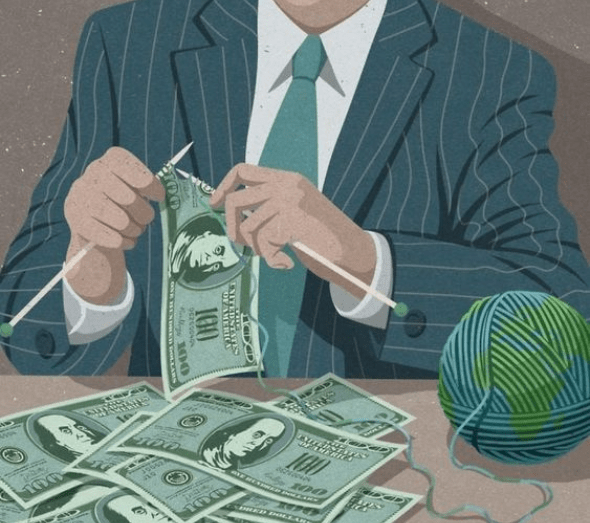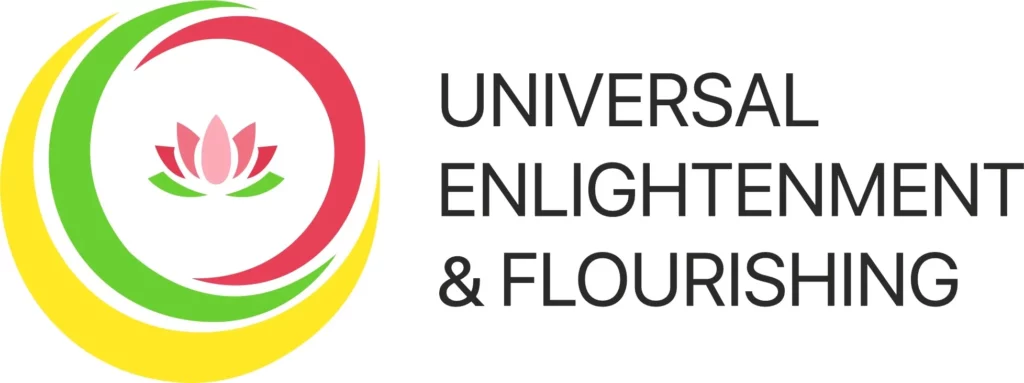Key Points:
Labor Day in America, observed on September 5, honors the laborers’ contributions and underscores the significance of honest, diligent work. Money, often a measure of status and relations, can also blind us. Kahlil Gibran likens money to love: withholding it harms, sharing enlivens.
Religions advocate simplicity and humility. Christianity warns against serving both God and money, for the love of money can breed grief. Islam emphasizes balanced spending, and its texts caution against the hold of money on hearts. Judaism finds meaninglessness in an obsession with wealth. Baha’i teaches that while we work for prosperity, our lives should align with higher ideals. Hinduism values detached wealth, urging its use for good. Buddhism acknowledges the positive effect of moderate wealth but urges transcending desire.
Daoism advises against wealth’s dominance, while Confucianism values wealth through ethical means, shunning extremes. Labor Day serves as a reminder: wealth is a tool, to be used thoughtfully and shared generously.
Every year, September 5 is celebrated as Labor Day in America, a day established by labour activists as a way to gain recognition for the hard work that labourers perform on a daily basis and their contributions toward the strength of the country as a whole. It is a celebration of making money through honest, hard work.
Money is the currency with which we transact with the world. It often defines our place in society and our relationships with others. Unfortunately, sometimes it can overpower and blind us too.
The secret is to view money — like any other source of pleasure — as having limitations. It is merely a means to an end, a servant rather than a master. Attachment to it is dangerous. Clearly, the correlation between money and happiness is tenuous, for why would some of the wealthiest people also be some of the most dissatisfied? Money has to flow for it to really have value. As the wise philosopher Kahlil Gibran said: “Money is like love — it kills slowly and painfully the one who withholds it, and enlivens the other who turns it on his fellow man.”
At a very basic level all religions prescribe humble and simple living. Most saints were simple wandering ascetics. Jesus was poor, dwelt among the poor, and spent 40 days in the desert without any possessions. Mahatma Gandhi inspired many with his simple cloth tunic, a symbol of surrendering worldly wealth in favor of a simple, spiritual life.
Judaism and Islam uphold charity, while Hindus believe that it is the greatest source of good karma. Buddhism, which equates suffering with desire, naturally cautions against money as it feeds desire. Taoism emphasizes the pursuit of simplicity in all things, suggesting that money and material possessions can complicate life.
And yet there must not be guilt associated with having wealth. Confucius reminds us that fetishizing poverty is as foolish as fetishizing wealth. In times of prosperity, there is nothing wrong with having money. But when others are struggling, we should be careful to ensure that our wealth is not earned at their expense. Money reflects abundance. Abundance is a privilege. Abundance must be shared.
Findings from modern psychology indicate that money up to a certain point (for instance, a roughly $75,000/year income in the US) helps increase happiness but not beyond that.
Having a comfortable income makes us happier because it eliminates many of the survival stresses that come from not having enough money to eat or have adequate shelter or emergency savings. But beyond this point, additional money does not correlate with additional happiness. Money as a necessary resource can enhance life, but holding money as a guiding value, chasing more of it after we have enough, can become a curse that may actually be detrimental to happiness.

Christianity
“No one can serve two masters. Either you will hate the one and love the other, or you will be devoted to the one and despise the other. You cannot serve both God and money.”
— The New Testament (Matthew 6:24), Christian text
“For the love of money is a root of all kinds of evil. Some people, eager for money, have wandered from the faith and pierced themselves with many griefs.”
— The New Testament (1 Timothy 6:10), Christian text
Islam
“The servants of the Lord of Mercy[…]are those who are neither wasteful nor niggardly when they spend, but keep to a just balance.”
— The Qur’an (25:63–67), Muslim text
“When there is money in your hand and not in your heart, it will not harm you even if it is a lot; and when it is in your heart, it will harm you even if there is none in your hands.”
— Ibn Qayyim Al-Jawziyyah, medieval Muslim theologian
Judaism
“Whoever loves money never has enough; whoever loves wealth is never satisfied with their income. This too is meaningless.”
— Hebrew Bible (Ecclesiastes 5:10), Jewish text
Baha’i
“Do not grieve, dear brother, for being poor, for you are rich instead in faith and in spirit. This is a divine wealth for which the richest of the world will crave for in vain. True we must work hard, earn money and keep our family in happiness and prosperity, but we must always realize that our lives must be devoted to things higher and more sublime. We must remember what great souls, whose lives still inspire hundreds and thousands, were of the poorest in the world.”
— Shogi Effendi, Baha’i leader
“Jesus Himself was poor. He did not belong to the rich. He passed His time in the desert, traveling among the poor, and lived upon the herbs of the field. He had no place to lay His head, no home. He was exposed in the open to heat, cold and frost — to inclement weather of all kinds — yet He chose this rather than riches. If riches were considered a glory, the Prophet Moses would have chosen them; Jesus would have been a rich man.”
— ‘Abdu’l-Bahá, Baha’i leader
Hinduism
“Accumulating wealth by a noble business,
Spending with detached mind,
He will reach a great goal,
He will enjoy greatly a life of treasure.”
— Hindu poem
“One may amass wealth with hundreds of hands but one should also distribute it with thousands of hands. If someone keeps all that he accumulates for himself and does not give it to others, the hoarded wealth will eventually prove to be the cause of ruin.”
— Rig Veda, Hindu text
Buddhism
“When he thinks, ‘With wealth acquired by energetic striving…righteously gained, I enjoy my wealth and do meritorious deeds,’ he experiences happiness and joy.”
— The Anguttara Nikaya, Buddhist text
“There is no satisfying the senses, not even with a shower of money. ‘The senses are of slight pleasure and really suffering.’ When a wise man has realized this, he takes no pleasure, as a disciple of the Buddhas, even in the pleasures of heaven. Instead he takes pleasure in the elimination of craving.”
— The Buddha

Daoism
“Someone who believes wealth is the most important thing cannot give up their income; someone who seeks pre-eminence cannot give up the hunt for fame; those who love power cannot hand it over to others.”
— The Book of Chuang Tzu, Daoist text
“Value life. If you value life then you will put profit into perspective.”
— The Book of Chuang Tzu, Daoist text
Confucianism
“It is a shameful matter to be poor and humble when the Way prevails in the state. Equally, it is a shameful matter to be rich and noble when the Way falls into disuse in the state.”
— The Analects, Confucian text
“Wealth and high station are what men desire but unless I got them the right way I would not remain in them. Poverty and low station are what men dislike, but even if I did not get them in the right way I would not try to escape from them.”
— The Analects, Confucian text


